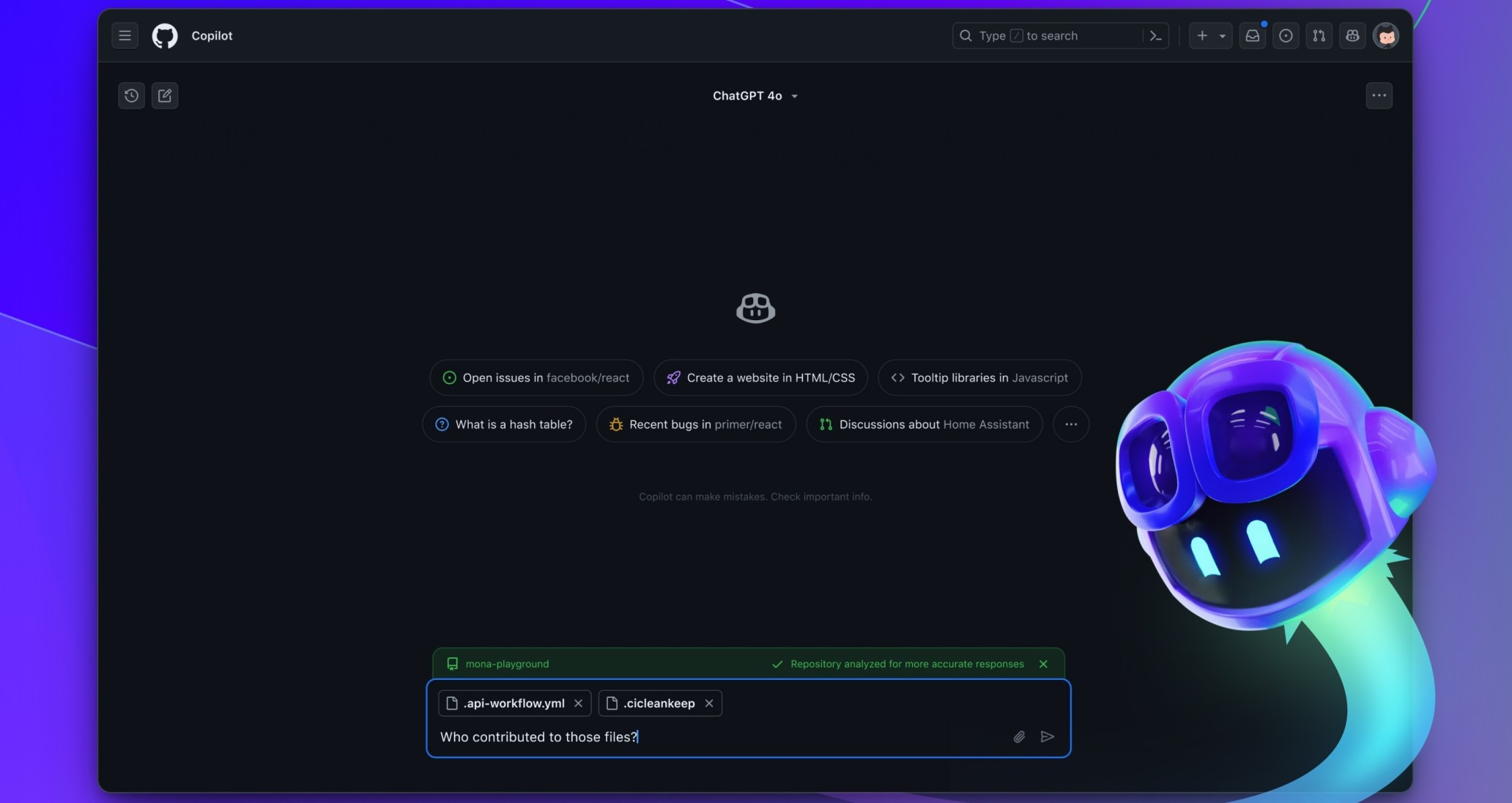Release
Copilot Chat on GitHub is now generally available for all users

Elevate your coding skills with our redesigned Copilot Chat, now featuring a dedicated home on GitHub.
What’s new in Copilot Chat on GitHub:
- Immersive chat experience at github.com/copilot: Copilot is now just one click away, offering a seamless and immersive chat directly on GitHub.
- Smarter and faster responses: Whether you’re brainstorming, problem-solving, or just exploring ideas, Copilot’s answers are sharper, richer, and more naturally attuned to your needs.
- Real-time interaction with your codebase: Ask questions and get immediate answers about your codebase, helping you understand how things work faster than ever.
- Generate and refine code effortlessly: Use conversational prompts to create and refine code snippets or entire files. Iterate seamlessly until you achieve the desired outcome.
- Navigate GitHub with natural language: Summarize issues and pull requests, retrieve specific information, and explore repositories without navigating through the UI.
- Leverage a variety of models: Choose from different AI models to get the best results based on your specific use case.
- Find and return to previous chats: Easily revisit past conversations, keep track of important insights, code iterations and decision-making processes by accessing your entire conversation history whenever you need it.
Expanded capabilities across your entire codebase
As part of this update, we’ve removed limits on how many repositories you can index. Now, you can enjoy the full capabilities of Copilot Chat across your entire codebase, whether you’re working on multiple projects or a large monolith.
Your feedback helps us continue to improve. Let us know what you think using the in-product feedback option or pop it into the GitHub Community at any time.